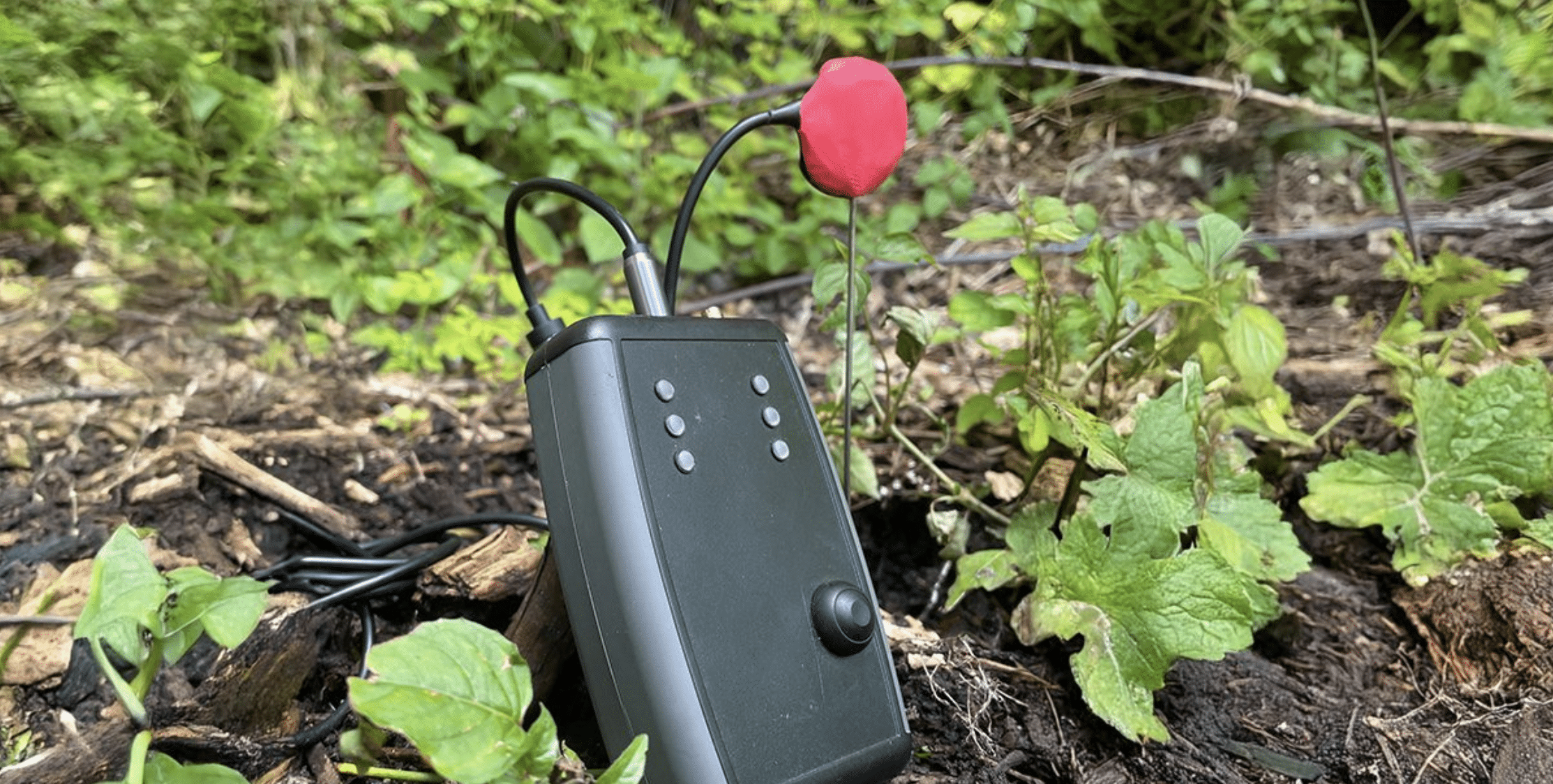Key Takeaways:
- Soil Acoustics Ltd has been granted a UK patent (GB 2 623 382) for its Soil Acoustic Meter (SAM), with patents pending in the EU and globally.
- The device offers a rapid, non-invasive method for monitoring soil health using sound-based technology.
- Developed in collaboration with the University of Warwick, the innovation was part-funded by the DEFRA Farming Innovation Programme.
- SAM provides a standardized approach to soil health assessment, reducing reliance on traditional labor-intensive methods.
- The soil health market is projected to reach $30 billion by 2030, driving demand for scalable and cost-effective solutions.
A Breakthrough in Soil Health Monitoring
Soil Acoustics Ltd, the sister company of Baker Consultants, has been awarded a UK patent (GB 2 623 382) for its Soil Acoustic Meter (SAM), a groundbreaking ecoacoustics technology designed to provide a rapid, non-invasive assessment of soil health. With additional patents pending in the EU and worldwide, this innovation marks a major advancement in sustainable land management.
The SAM was developed in partnership with scientists from the University of Warwick and supported by a grant from the DEFRA Farming Innovation Programme. The result is a cutting-edge tool that eliminates the need for manual soil sampling, allowing for faster and more consistent analysis.
How the Soil Acoustic Meter Works
Addressing Challenges in Soil Health Assessment
Traditional soil health assessments often require:
- Digging and manual soil sampling, which is time-consuming and labor-intensive.
- Chemical testing, which lacks a standardized approach to measure biological diversity.
- Variability in results, making large-scale monitoring difficult.
A Faster, More Scalable Solution
The Soil Acoustic Meter (SAM) offers an alternative by using ecoacoustics to analyze soil health. The device works as follows:
- A handheld sensor records sound samples from the soil for three minutes.
- The collected data is GPS-located for precise tracking.
- Sound patterns are compared against an extensive soil sound database, generating a Soil Acoustics Quality Index (SAQI) score.
By using sound-based analysis, land managers can quickly and accurately assess soil biodiversity and health without disturbing the soil.
Research and Applications
Building a Soil Health Database
Extensive data collection and analysis were conducted across UK and European farms in collaboration with:
- Yeo Valley
- First Milk
- Wildfarmed
- National Trust
- Environment Bank
- The Devonshire Group
- Rothamsted Research
The SAM is also being tested in vineyards in France, including at Ruinart, to monitor biodiversity and soil conditions.
AI Integration and Predictive Analysis
The collected data is being used to train artificial intelligence (AI) models that can further:
- Analyze relationships between soil sounds and key health indicators.
- Predict long-term soil health trends.
- Guide land managers on optimizing treatments, fertilizers, and regenerative farming strategies.
Real-World Impact and Future Applications
Agricultural & Environmental Sectors
The Soil Acoustic Meter is designed for use across multiple sectors, including:
- Arable and dairy farming – improving soil management and crop yields.
- Agroforestry – monitoring biodiversity in forested agricultural systems.
- Viticulture – optimizing soil health in vineyards.
- Rewilding & habitat restoration – assessing ecological restoration projects.
A Tool for Data-Driven Decision Making
With the rising focus on soil health in UK and EU agricultural policies, the SAM provides land managers with:
- A cost-effective and scalable solution for ongoing soil assessments.
- Accurate insights to guide soil treatment and regenerative farming decisions.
- A standardized method for evaluating soil health across different landscapes.
Expert Perspective: Andrew Baker on the Future of Soil Health
Andrew Baker, Managing Director and Founder of Baker Consultants, emphasized the importance of new technologies in soil health monitoring:
“This is an exciting time for agriculture, with the recognition that good soil health is imperative for crop yields as well as preserving and restoring biodiversity. But we also need new tools and technologies to allow land managers to measure the success of each intervention.
We are very excited to see people start using soil acoustics to collect robust scientific data in a cost-effective and repeatable way. This will directly inform their farming practices and benefit soil health.”


